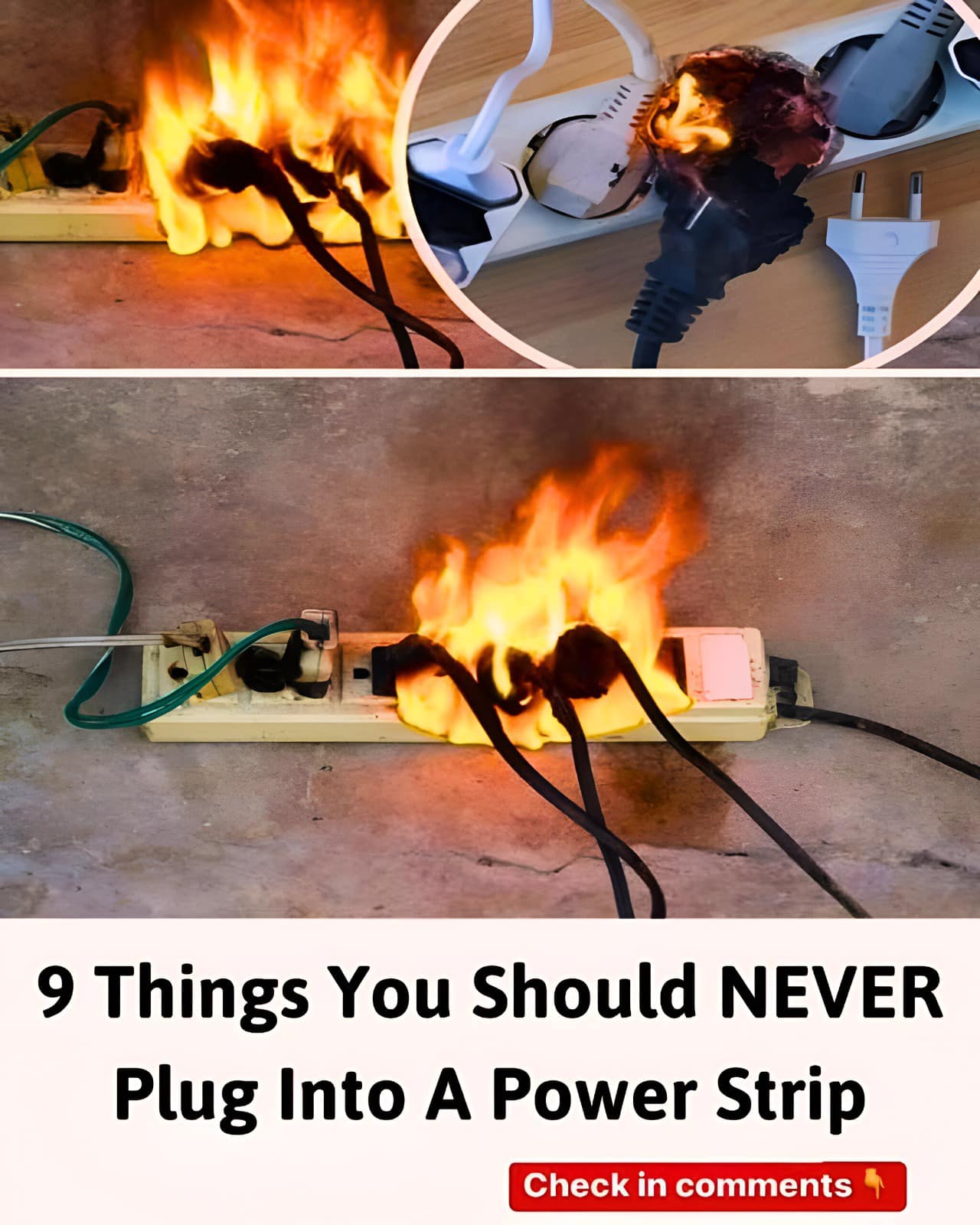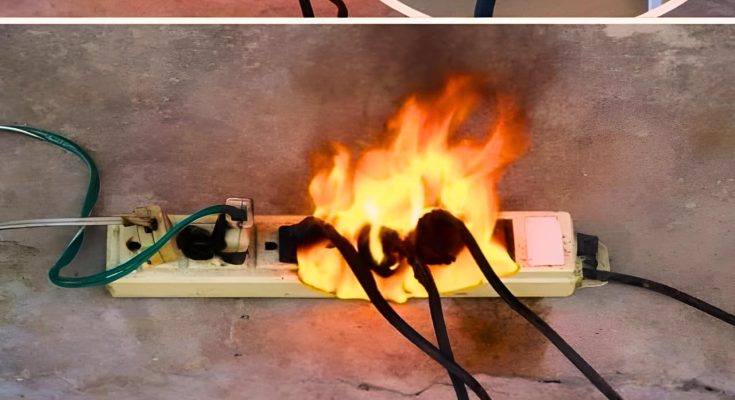As temperatures drop and winter settles in across much of the northern hemisphere, people are cranking up their heaters and digging out old space heaters to stay warm. While space heaters are convenient and cozy during the colder months, firefighters across the country are sounding the alarm about one crucial safety rule that far too many people overlook. Their message is simple but urgent: never plug a space heater into a power strip. It might seem harmless, but doing so could start a fire and endanger everyone in your home.

The Umatilla County Fire District #1 in Hermiston, Oregon, recently posted a now-viral warning on Facebook to remind the public about the hidden dangers of misusing space heaters. Their message made it clear: “You should never plug a heater into a power strip. These units are not built to handle the high current that a space heater draws. Doing so could cause the strip to overheat and catch fire.” While this message might surprise some people, it’s a critically important piece of advice that could save lives.
The warning wasn’t just a theoretical one. Fire departments across the country, like the Toledo Fire Department in Ohio, have responded to fires caused by space heaters plugged into extension cords or power strips. In one incident, a space heater ignited a couch, and within minutes, the entire house was engulfed in flames. What many people don’t realize is that space heaters can reach temperatures of up to 600 degrees Fahrenheit. When used improperly, they can easily become fire hazards. That’s why firefighters are urging people to follow a few basic safety rules: always plug your heater directly into a wall outlet, keep at least three feet of clear space around it, never leave it unattended, place it on a flat surface, and never put it on furniture, cabinets, or carpets.
According to the U.S. Consumer Product Safety Commission, portable space heaters are responsible for about 1,200 house fires each year. That’s a staggering number, especially considering how preventable many of these fires are. As the Oregon fire department stated, “Even the best equipment can become dangerous if it’s used incorrectly. It’s not about the manufacturer—it’s about the user being responsible and informed.”
Space heaters aren’t the only fire risk when it comes to power strips and electrical outlets. With a few precautions, you can significantly reduce your risk of electrical fires during the winter—and year-round. First and foremost, always unplug heat-generating appliances when they’re not in use. That includes items like curling irons, hair dryers, kettles, toasters, and, of course, space heaters. Leaving these devices plugged in can cause them to overheat or malfunction, especially if there’s a power surge.
Also, remember that extension cords and power strips are meant for temporary use only. If you’re relying on them permanently, it’s time to call an electrician and have additional outlets installed in your home. Another key point is to never remove the third prong from a power cord. That third prong is a safety feature designed to protect against electrical surges and potential shocks. If your home still uses two-pronged outlets, consider upgrading your system.
Speaking of electrical systems, if your home is older, it might be time for a professional inspection. Outdated wiring is much more likely to overheat and cause fires. An electrician can assess your home’s wiring and recommend any necessary upgrades to keep everything safe and up to code.
Damaged cords are another hazard. If you notice a power cord that’s frayed, cracked, or has a bent or missing prong, stop using it immediately. Damaged cords can spark, overheat, or short-circuit, potentially leading to fire. Always replace them with new, safe cords.
And don’t forget the importance of reading the instructions that come with your appliances. User manuals often contain valuable safety information, including where to register for product recalls and how to use the appliance correctly to avoid fire hazards. If you ignore warning signs—like a burning smell, discoloration around an outlet, or a frequently tripping circuit breaker—you might be missing early signs of a potential fire. If an outlet or appliance is hot to the touch, sparking, or emitting smoke, stop using it immediately and call a professional.
Finally, make sure every room in your home has a working smoke detector. Test them regularly and replace the batteries at least once a year. A smoke detector can give you the early warning you need to escape safely in the event of a fire.
In short, space heaters can be safe if used properly, but they’re not compatible with power strips. Taking a few precautions can help you stay warm this winter—without putting your home or family at risk.

